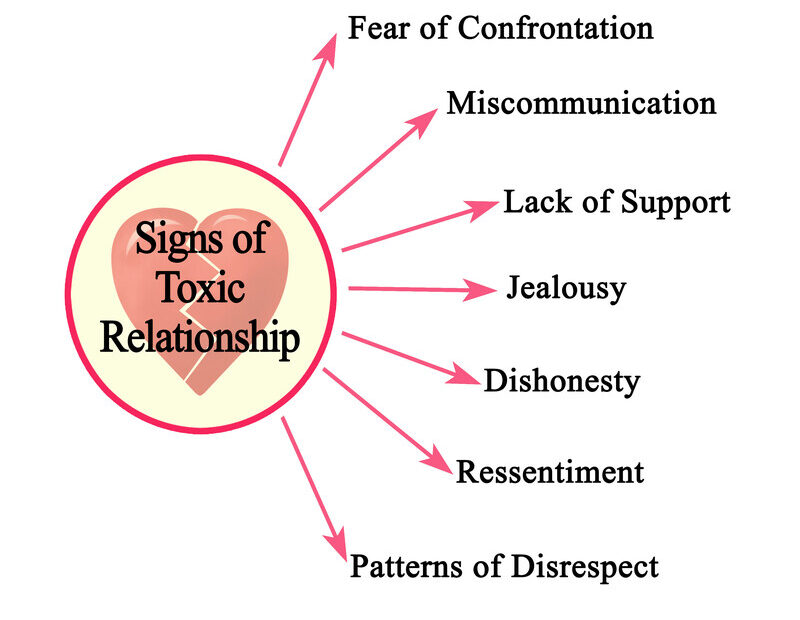Toxic relationships can occur between you and your partner or between you and your children or at work between you and your workmates. However, they generally have similar characteristics. In this blog, we will learn how to identify the types of toxic relationships and how to rectify them.
What are some types of toxic relationships?
- Someone that puts you down. For example, they may criticize you or mock you or make fun of your ideas and/or beliefs. They may act superior to you and belittle you. They try and reduce your self-esteem and make you feel that you are lucky to be with them (but the opposite is actually the case).
- Prone to anger. When your partner can be easily triggered, it can feel like you have to walk on eggshells in terms of what you say or do. They need to learn anger management skills. You need to be able to be yourself.
- The guilt-tripper. Whenever you do something they don’t like, they may aim to make your feel guilty. It can be about small things. Or they may have seemed to support your decision, but then they make subtle jabs at it. For example, if you decide to go back to studying full-time, they may say how messy the house is these days.
- Overly dependent. If you find that your partner acts as if they couldn’t survive without you, they may be over-dependent. The aim of a healthy relationship is to help each other grow to be strong and confident, but still loving towards one another.
- Jealous or paranoid. If your partner feels betrayed whenever you interact with someone of the same gender as them, they may be overly jealous. You may have trust issues in your relationship that need to be dealt with before they undermine it.
- The selfish narcissist. We can’t talk about toxic relationship types without mentioning the person that is just using you. They may be so self-obsessed that they treat you like a servant rather than their equal. How often do they spontaneously do something nice for you – however small? Have they always been that way?
How can you rectify relationship issues?
Couples counseling is the best way to resolve toxic relationship issues. With the guidance of an experienced relationship counselor, you will learn how to communicate better. This itself can help facilitate a cool calm discussion about many issues facing the relationship.
You can learn how to fight fair without resorting to behaviors and actions that will destroy the relationship. For example, criticism, contempt, stonewalling, and defensiveness can lead to a relationship breakdown.
Your counselor may also discuss whether you have become co-dependent on each other. And what to do if you have.

